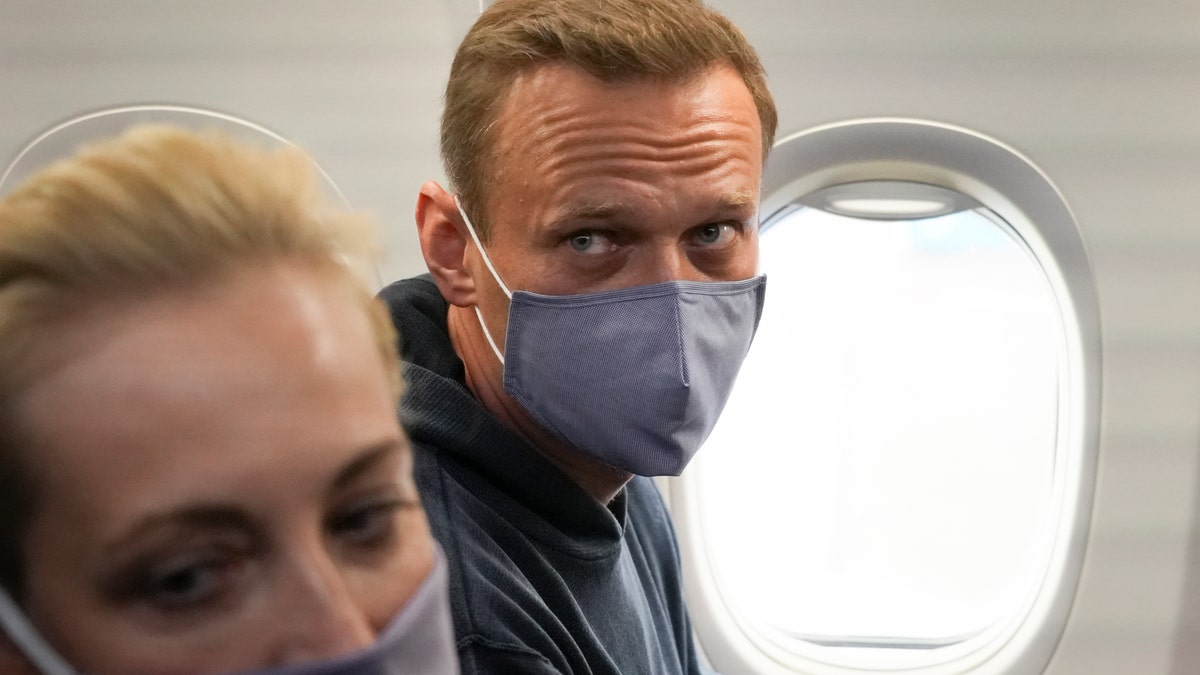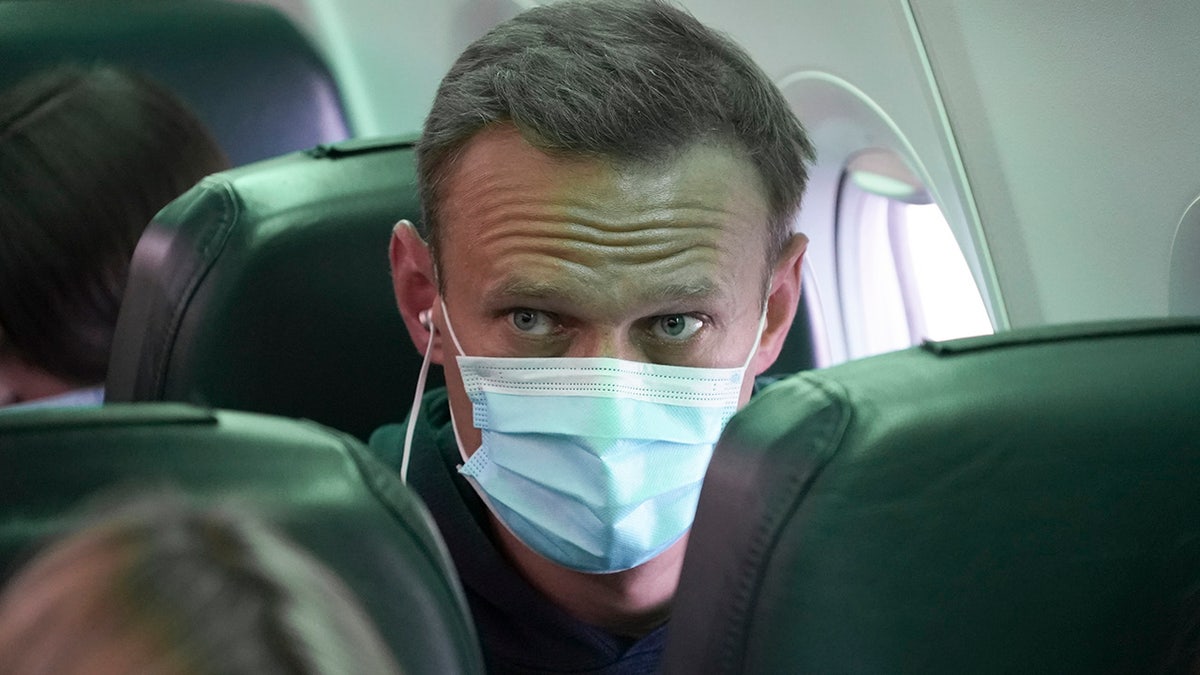Being Navalny: Russian activist, wife reveal his brush with death
An interview about what life is like for the family of Russia's most famous opposition figure
Russian opposition leader Alexei Navalny returned to Russia on Sunday five months after his poisoning with the nerve agent Novichok. He was immediately detained on his arrival in Moscow.
He arrived with his wife Yulia Navalnaya at Moscow’s Sheremetyevo Airport on Sunday evening local time.
Navalny traveled from Berlin to Moscow after recovering in Germany from his poisoning in August. Confusion surrounded his arrival in Russia -- his plane was scheduled to land at Moscow's Vnukovo Airport, where supporters and media were waiting.
His spokeswoman Kira Yarmysh tweeted at 12:12 p.m. ET that he had arrived at Sheremetyevo. "Until recently it was impossible to believe that they were so afraid. But here's the confirmation," she wrote, in a translated tweet.
SUPPORTERS AWAIT NAVALNY’S RETURN AT MOSCOW AIRPORT, WHERE HE FACES THE THREAT OF ARREST

Alexei Navalny and his wife, Yulia sit in the plane prior to their flight to Moscow in the Airport Berlin Brandenburg (BER) in Schoenefeld, near Berlin, Germany, Sunday, Jan. 17, 2021. (AP Photo/Mstyslav Chernov)
After disembarking the plane, Yarmysh tweeted that Navalny was asked to go somewhere to "clarify the circumstances of crossing the state border"
She then tweeted video of Navalny being taken away by police. He kissed his wife before being detained.
Later Yarmysh tweeted that Navalny's whereabouts are unknown and it is unclear how long he will be under arrest for. Navalny does not have a lawyer with him, she said, in a translated tweet.
At Vnukovo, Navalny supporters and members of his team were detained by police prior to his arrival, according to reports and posts on social media.
Video showed prominent opposition activist Lyubov Sobol being detained at Vnukovo.
Navalny announced Wednesday that he would return, despite Russian authorities' threats to put him behind bars again. On Thursday, Russia's prison service said that he faced immediate arrest upon his return.
U.S. Secretary of State Mike Pompeo issued a statement condemning Navalny's arrest and said the U.S. demands his "immediate and unconditional release."
"The United States strongly condemns Russia’s decision to arrest Aleksey Navalny. We note with grave concern that his detention is the latest in a series of attempts to silence Navalny and other opposition figures and independent voices who are critical of Russian authorities," Pompeo said. "Confident political leaders do not fear competing voices, nor commit violence against or wrongfully detain political opponents. The Russian people, like people everywhere, deserve a government that supports an open marketplace of ideas, transparent and accountable governance, an independent judiciary, and the ability to exercise their basic human rights of speech and assembly without fear of retribution."
Navalny, who has blamed his poisoning on the Kremlin, charged that Russian President Vladimir Putin was trying to deter him from coming home with new legal motions. The Kremlin has repeatedly denied a role in the opposition leader’s poisoning.
CLICK HERE TO GET THE FOX NEWS APP

Alexei Navalny sits on the plane prior to a flight to Moscow, at the Airport Berlin Brandenburg (BER) in Schoenefeld, near Berlin, Germany, Sunday, Jan. 17, 2021. (AP Photo/Mstyslav Chernov) ((AP Photo/Mstyslav Chernov))
At the end of December, the Federal Penitentiary Service, or FSIN, warned Navalny that he faced time in prison if he fails to immediately report to its office in line with the terms of a suspended sentence and probation he received for a 2014 conviction on charges of embezzlement and money laundering that he rejected as politically motivated. The European Court for Human Rights had ruled that his conviction was unlawful.
The Associated Press contributed to this article.
Follow James Rogers on Twitter @jamesjrogers








































